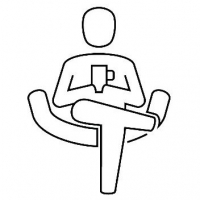To provide the best experiences, we use technologies like cookies to store and/or access device information. Consenting to these technologies will allow us to process data such as browsing behaviour or unique IDs on this site. Not consenting or withdrawing consent, may adversely affect certain features and functions.
The technical storage or access is strictly necessary for the legitimate purpose of enabling the use of a specific service explicitly requested by the subscriber or user, or for the sole purpose of carrying out the transmission of a communication over an electronic communications network.
The technical storage or access is necessary for the legitimate purpose of storing preferences that are not requested by the subscriber or user.
The technical storage or access that is used exclusively for statistical purposes.
The technical storage or access that is used exclusively for anonymous statistical purposes. Without a subpoena, voluntary compliance on the part of your Internet Service Provider, or additional records from a third party, information stored or retrieved for this purpose alone cannot usually be used to identify you.
The technical storage or access is required to create user profiles to send advertising, or to track the user on a website or across several websites for similar marketing purposes.
 The big workplace news story of the past week or so appears to be one about a toilet seat. Sometimes it’s in the small things we can discern a greater truth. To see a world in a grain of sand, as William Blake wrote. The seat of this much discussed loo is tilted forward by 13 degrees so that after about five minutes it becomes very uncomfortable because people tire of using their legs to stop themselves sliding off. The reason is clearly to stop them ‘wasting time’ on the toilet. (more…)
The big workplace news story of the past week or so appears to be one about a toilet seat. Sometimes it’s in the small things we can discern a greater truth. To see a world in a grain of sand, as William Blake wrote. The seat of this much discussed loo is tilted forward by 13 degrees so that after about five minutes it becomes very uncomfortable because people tire of using their legs to stop themselves sliding off. The reason is clearly to stop them ‘wasting time’ on the toilet. (more…)

































January 14, 2020
The Fourth Industrial Revolution is upon us and we`re not ready for it
by Jamie Morgan • Comment, Technology